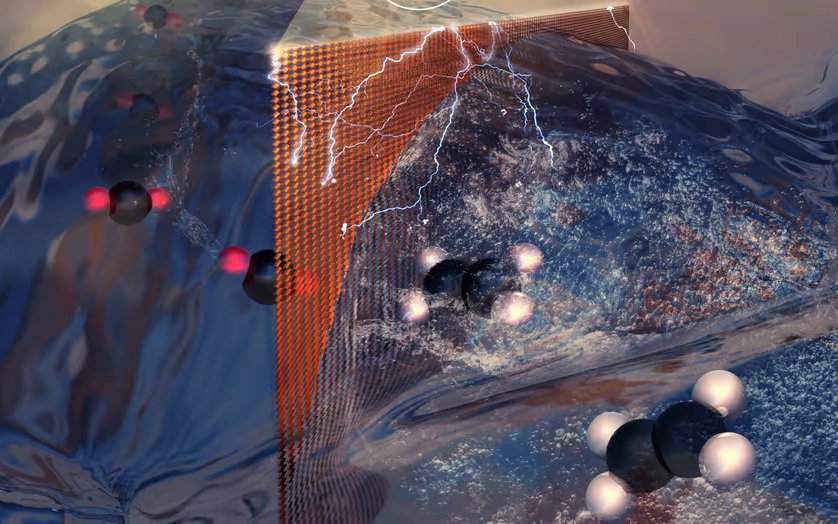
If you have been reading this blog for a while, you know that I am very skeptical of the idea that global warming (aka climate change) is a serious problem. There are many scientific reasons for this, most notably the fact that we still have no real understanding of how increased carbon dioxide in the atmosphere affects global temperature. However, we do know that the amount of carbon dioxide in the air is increasing, and we also know that human activity is causing that increase. As a result, it is reasonable to try to do something about that, as long as we don’t kill people or a disproportionate number of animals in the process. The problem, of course, is that most of the proposed solutions for reducing humanity’s carbon dioxide emissions do both (see here, here, here, and here).
Rather than trying to replace efficient and inexpensive sources of energy with our current unreliable, expensive, and deadly “green” sources, we should work on developing technologies that reduce carbon dioxide emissions in a way that doesn’t affect energy price and availability. One example of this better approach can be found in a recently-published study that reports on a new method which can be used to convert carbon dioxide into ethylene, a chemical that is used in a wide range of industrial processes.
The most common method currently in use for producing ethylene is called “steam cracking,” and it is a high-temperature process that is estimated to produce 260 million tons of carbon dioxide each year. However, the process described in the study can be done at much lower temperatures. It involves passing an electric current through a chemical reaction vessel that contains carbon dioxide and a water-based solution. Hydrogen atoms from the water end up combining with carbon atoms from the carbon dioxide to produce ethylene. While such methods have been explored in the past, this method is significantly more efficient. In addition, if the electric current powering the cell is produced by solar or other renewable energy sources, the process actually uses up carbon dioxide. In other words, this process turns an activity that adds carbon dioxide to the atmosphere into an activity that pulls carbon dioxide from the atmosphere.
But wait a minute. If this process requires renewable energy sources to pull carbon dioxide out of the air, aren’t we just falling back on the old “green” technologies that cause so many problems in the first place? Not really. Two of the biggest problems with current “green” technologies are that they make energy more expensive and often cannot keep up with our energy demands. This process actually reduces cost significantly, because it doesn’t require so much heat. Thus, the higher expense of “green” technologies is offset by the lower cost of the process as a whole. Also, we don’t need to be making ethylene constantly. We can make lots of it when the “green” sources are producing energy, and we can wait when they aren’t. As a result, we are not harmed by their limitations.
In addition, scaling up this technology to make it useful for industrial purposes will probably lead to ideas of how similar processes can be used in other industrial applications. In my view, this kind of technology should be the focus of any proposed solutions for reducing humanity’s carbon footprint.

This idea goes against God’s commands who commands us all to go forth and be fruitful and multiply. If God thought it would be ruinous to the world to have the earth filled with humans and animals surely He would not have commanded it because He is perfect and in Him there is no shadow of turning.
And just another thought. The humans have only explored 5% of the world’s oceans! How can humans come to any conclusion about our vast world and universe with such a small exploration of the earths capacity? And the oceans of the world have everything to do with weather and climate and air and animals and humans and grass, shrubs and trees which all are involved with the weather.
I have disagreed with you in the past on global warming but this time I concur completely.
Are they trying to produce a new ice age? Given the insanity rampant today, trying to save the earth from us, who it was made for, I can believe it. One great-grandfather talked about the aftermath of Krakatoa, and how many starved because of frosts for two summers, or suffocated in their homes because of massive blizzards.
I wonder if attempts to reduce global warming has backfired. I’ve read several articles about some parts of the Mississippi river drying up. People are now able to cross it by foot! Several regions in the US are facing extreme droughts. I have always viewed CO2 as instillation. While it doesn’t add heat by itself, but prevent heat from escaping at a fast rate. My fear is that governments might try extreme measures to combat CO2 increase and may end causing more problems. We don’t even have to be told what’s going on.